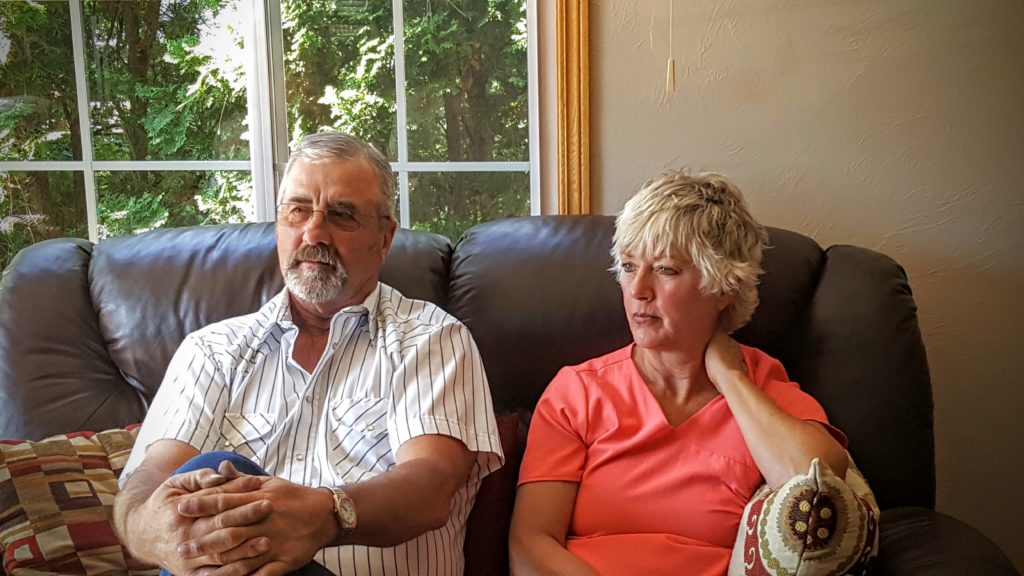 It was a sunny, warm July morning in Northeast Washington. Vern Williams was just days away from harvesting his golden wheat crop.
It was a sunny, warm July morning in Northeast Washington. Vern Williams was just days away from harvesting his golden wheat crop.
“We should start harvesting next week,” Vern said. “I am praying really hard we don’t have a hailstorm between now and then. This is my best crop in a really long time.”
The Williams farm is located about 16 miles southwest of Spokane, near Medical Lake, in some of the best cropland in the country. As you drive through the rolling hills and valleys of Spokane County, all you see for miles and miles is wheat stalks swaying in the wind.
Vern has been farming since 1970, and it’s all he’s ever wanted to do. His great grandfather, grandfather, and father were all farmers before him.
“I wanted to farm after high school but couldn’t, so I went to college and learned how to be a diesel mechanic.”
A few years later, Vern would finally get his chance to farm. A local farmer told him if he worked hard, he would some day lease him the land.
“I did it. I stuck with him through thick and thin,” Vern said with just a little pride in his voice.
Vern raises wheat, hay, and sometimes barley. He also has a few cattle.
Vern’s wife, Shelley, works off the farm in Spokane, but there is no doubt she is an important partner in the Williams farm. Both are soft-spoken, but were adamant about the need to protect their crops from a bad storm or low prices.
“The fact that if we have a loss, that we wouldn’t lose our livelihood; that’s why we have it. So we can sleep at night,” Shelley said.
The Williams’ talked about the year a bad storm came through their farm and hail wiped out their entire crop.
“I remember my first reaction when looking at the acres and there was nothing left was ‘oh my god’,” said Shelley. “But then you remember you’ve got insurance and the devastation is not nearly what it could be.”
Vern and Shelley are grateful the government provides crop insurance premium discounts.
“Twenty years ago, we didn’t have crop insurance. And I don’t know why,” Shelley said looking at Vern for the answer.
“I do. It was too expensive,” Vern replied.
Both agreed they wouldn’t still be farming without the premium support.
It isn’t hard to see Vern’s commitment to his profession when you visit the farm. He isn’t farming thousands of acres and doesn’t have brand new equipment. But he is doing what he loves. And his wheat crop that summer reflected his determination to be the best farmer he can be.
“We farm for broke every year,” Vern said. “We want to get the best crop we can every year. If something comes up and crop insurance has to help you, that’s fine. But that isn’t why I farm.”
Shelley agreed. “If we need to use crop insurance it’s because something happened that’s completely out of our control. You can do everything you are supposed to do as a farmer and still have a disaster through absolutely no fault of your own.”

